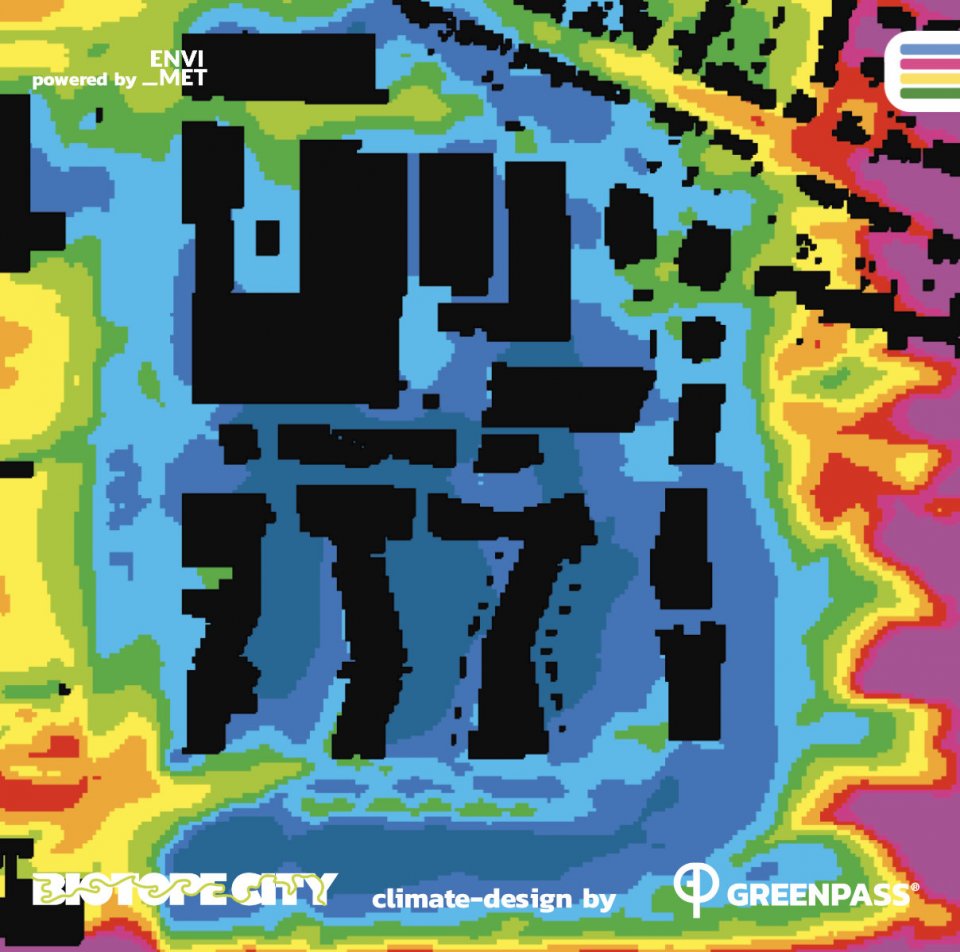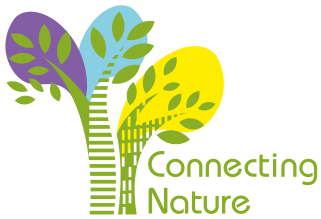
The world's first Biotope City is located on the property of former Coca Cola company in the South of Vienna/Austria. The project area is approx. 7 ha large and located adjacent to the 'Wienerberg' recreation area in the 10. disctrict of the greenest city in the world.
Formerly the site was completely covered with factory buildings. Instead of this a dense, green residential area is planned – even more than that: an area, which will implement the guiding principles of an urban biotope. The area borders along the busy Triesterstrasse, with on its opposite side, the Wienerberg City with its’ closely packed residential towers – an unfortunate heritage of urban misapprehensions of the 80s, which can also be found in Vienna. In the north, however, the area is adjacent to grouping of small houses dating back to the 1930s’, and in the south and east to the Wienerberg and Otto Benesch-Park are large green recreational areas. Only on the northwest corner is there still a small factory, namely, a painters shop.
Actually already more than 2,000 happy residents live within the world's first official climate-fit & GREENPASS Platinum certified urban quarter, which has been finalized in 2021.
Biotope City is an integral concept of the Biotope City Foundation Amsterdam based on the integrative combination of Flora + Fauna + Humans to realise the dense city as nature.
World's first official climate-resilient district and world's first constructed Biotope City in Vienna with 2/3 affordable social housing and climate adaptation by the support of GREENPASS - the world's first Software-as-a-Service for climate resilient urban planning & architecture (www.greenpass.io).
- Realization of around 950 apartments in various typologies, including approx. 600 subsidized apartments and approx. 200 low-cost SMART apartments (2/3 affordable social housing)
- Climate-optimized design with IT-Support by GREENPASS
- Holistic climate-resilience assessment with simulation-based analysis powered by ENVImet
- Official Certification - world's first GREENPASS PLATINUM certified and climate-fit district
- Mixed and varied use of the area through office space, kindergarten, new middle school and shops
- Urban and lively base zone through commonly usable communal areas
- Co-Creation & User participation through participation in planning and maintenance
- Generous space for play, sport, local recreation and urban gardening across all building sites
- Community areas as meeting points for residents, e.g. roof gardens, community pool, greenhouses
- Private and public green spaces as well as green roof terraces
- Large-scale use of extensive to intensive green roofs
- Ground- and planter-based facade greening as part of the facade design
- Large number of new plantings using large-crowned trees
- Preservation of existing trees on the north and north-east border of the area
- Graduated vegetation structures, diverse greening with native species
- Use of sustainable and integrative water management
- Land recycling through the introduction of fresh topsoil into the former Commercial area
- Building material recycling through extensive recycling of demolition material in Building process
- Support by two scientific research projects
- Development of the Biotope City criteria catalog for quality assurance in Master plan
impacts by optimized design compared to status quo
- high thermal comfort (+24 TCS points)
- up to 22.3°C PET reduction
- up to -2.2°C air temperature reduction
- 33 % less rain water run-off
- 40 % less sealed area
- more than double Carbon Sequestration on a typical heatday
- +11.1 ha leaf area
- +2.5 ha green area
- approx. 50 % less Thermal Storage Score
- Developing climate change adaptation; improving risk management and resilience
- Flood peak reduction
- Increase infiltration / Water storage
- Increasing infiltration
- Reduce flood risk
- Reduce load to sewer system
- Reduce run-off
- Reducing temperature at meso or micro scale
- Carbon sequestration and storage
- Improve connectivity and functionality of green and blue infrastructures
- Increase Biodiversity
- Increase quality and quantity of green and blue infrastructures
- Enhancing sustainable urbanisation
- Improve air quality
- Increase amount of green open spaces for residents
- Increase awareness of NBS solution & their effectiveness and co benefits
- Increase social interaction
- Increase stakeholder awareness & knowledge about NBS
- Increase well-being
- Provision of health benefits
The Biotope City Concept is fully transferable worldwide. For transferability of the Biotope City a practical construction guideline (Biotope City Bauanleitung) for a Biotope City has been developed.
Download Link: https://biotope-city.net/bauanleitung-biotope-city/
For lessons learned please see deeper R&D documentation available.
approx. only 2 % of total construction costs for investment of green & blue infrastructure
- Build or attached planter systems (including green balconies)
- Choice of plants
- Climber green walls
- Diversity of plant species
- Green roofs (1)
- trees
- lawn
- meadow
- blue infrastructure
- Water
- perennials
- raingardens
- shrubs
GREENPASS standardized Key Performance Scores (KPS), Key Performance Indicators (KPI) & Urban Performance Indicators (UPI) - based on ENVImet expert simulation
Stiftung Biotope City
Leliegracht 43
1016 GT Amsterdam
Niederlande
contact@biotope-city.net
- 3. Good Health and Well-being
- 11. Sustainable Cities and Communities
- 13. Climate Action
- 15. Life On Land












